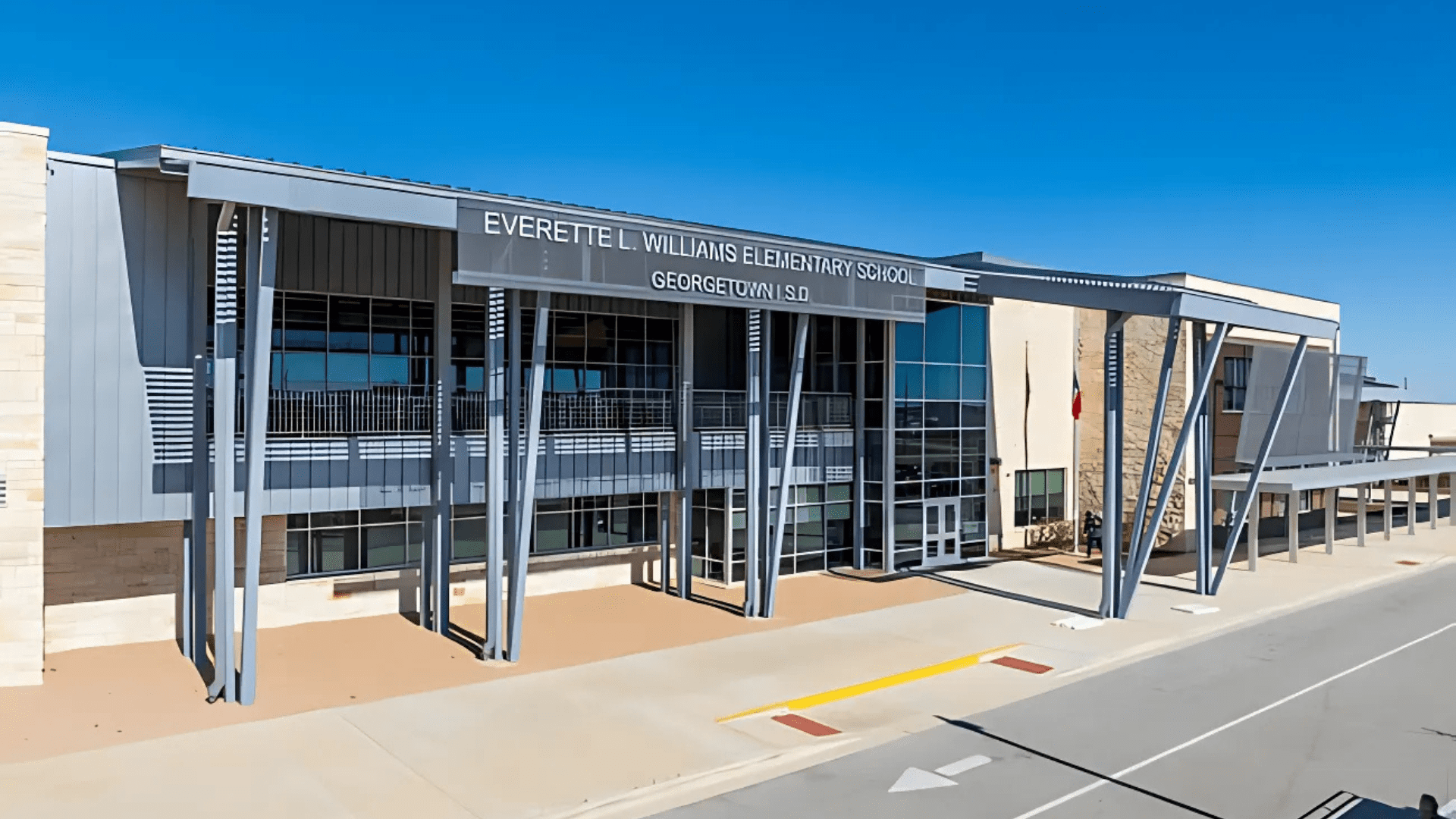Located just north of Austin, Georgetown is a fast-growing community that maintains its Mayberry-like charm.
But there are those who say all is not what it appears.
Within the community are frustrated parents and hurting students crying out over what they’ve experienced at Georgetown Independent School District.
Over the course of this three-article series, Texas Scorecard will share the stories of three families alleging this district has been negligent in its duty to protect students.
Confer’s Story
Carolyn Confer, a mother of three, entrusted her children to Georgetown ISD from elementary through high school.
This story is about her now 11-year-old daughter, a special needs student. To protect her identity, we’ll call her by the pseudonym “Leslie.”
On April 23, the school district contacted Confer. Her then 10-year-old daughter had been sexually molested by a male student of the same age. The incident occurred on April 19. Confer was incensed. “The school did not notify myself or her dad for four days from the incident being brought to the school’s attention by other students,” she said. “I was very upset and asked the district why it was not brought to my attention sooner. And [the assistant principal] just said that, ‘I’m sorry. I understand.’”
This was not the first incident between “Leslie” and this male student at Williams Elementary. He will be identified by the pseudonym “Elias.” Confer said it started in their third year. “We had a stay-away agreement because the [male] child was verbally saying some things to my child and then also physically threw a rock at her and laid his hands on her in a physical manner.” The stay-away agreement lasted from March 2023 to May 2023.
Janelle Davis, an education attorney in North Texas, criticized these types of agreements. “Those stay-away agreements are not worth the paper they’re printed on,” she said. “A lot of times, parents aren’t even aware that their child has been presented with a stay-away agreement to sign.”
Davis said these agreements put the aggressor and the victim on an equal level. She explained these agreements state both students have to stay away from each other “Now you have a situation where a victim is put in a situation where, if they happen to come across their aggressor, they can be subject to discipline for violating the stay-away agreement.”
She added that while schools tell parents they’ll do their best to keep the students separated, it’s impossible. “They’ve now put their teachers and those people who are with these kids on a daily basis in an impossible situation now where they’re trying to keep two students apart, and manage a classroom, and teach, and keep everybody else safe. It’s just not a workable solution.”
Confer said matters didn’t improve for her daughter after their stay-away agreement. Elias started verbally harassing Leslie again in fourth grade. It escalated. “It turned to a sexual manner where he was touching her inappropriately and telling her that when they get older, they’re going to hump each other,” she said. “And taking her off and trying to hump her at school and doing very inappropriate things.”
Leslie was scared. This went on for three weeks. “The last time she spoke up [was] when he started to physically assault her. She was scared that it was going to result in more harm if she did speak up at that time,” Confer recalled. “She had also asked other students to be her bodyguard against the child because she was scared of him.”
Leslie’s classmates informed the district. Then after four days, Confer said that’s when the district informed her. This situation took her entirely by surprise. “I didn’t expect it to happen at all with any of my kids, let alone at a fourth-grade level,” Confer said. “It’s something that I don’t feel fourth graders should have to worry about, but unfortunately, that’s the day and age we’re in.”
Davis said similar events are happening statewide. “I think we’re seeing a huge increase in teacher, staff misconduct with students and then also student on student, either violence or sexual abuse. That’s becoming a huge problem in our schools.”
Davis said schools appear to be either overlooking red flags or minimizing concerns parents raise to them. “Oftentimes, if a parent tries to report something to the school district police department, they are, depending on the age of the aggressor, they’re often told, ‘We can’t do anything. That person is so young,’ or ‘We won’t do anything because they’re so young. We don’t want them to have a criminal record.’ They don’t take it seriously.”
Confer has lost trust in government school districts now. “I would in a heartbeat, if I could financially afford it, have my children pulled into a school that I could choose from,” she said. “The sad thing [is,] we came here because Georgetown has been a good school district … and Georgetown’s one of the number one move-to-cities right now in Texas.”
Not only did Confer find the school district had kept her in the dark, but she also found them unwilling to act. “The child was still at the school for multiple weeks, even after the incidents had occurred … They would not remove him from the campus,” she said. “The district just didn’t want to do anything about it.”
Confer added that the district also didn’t notify the school resource officer. “I had to notify the school resource officer. This school district did not report it to CPS. I’m the one that had to. All the reports came from myself. Nothing came from the school district as a mandatory reporter.”
Meanwhile, Leslie cried for multiple mornings. She didn’t want to go to school. This continued until Confer herself got a lawyer and involved law enforcement. “Then, all of a sudden, multiple hours after … the Title IX coordinator called me and stated that we needed to start a Title IX investigation.”
What is Title IX? Davis explained, “[It] is a federal law that protects individuals from discrimination on the basis of sex.” Most of the time when parents are trying to address an issue at school, they will go to the federal court system based on this law.
Davis pointed out that in Texas there isn’t a legal remedy for parents to sue a school district for negligence in state court. “There’s really very few state court claims they can file. There’s really only two, and most of the time when something happens at school, neither of those potential claims apply, so parents will often turn to federal court,” she said.
Only Texas lawmakers can make state school districts more accountable in state court.
This year is the only year Georgetown ISD guaranteed that the alleged perpetrator will not be in the same school as Leslie. Confer and the district went into mediation on September 9. They discussed her daughter’s special education program, known as an Individualized Education Plan. But Confer found the district didn’t want to discuss the Title IX investigation.
After all she’s been through, Confer isn’t satisfied. She’s taking Georgetown ISD to federal court. “We’re looking for change in the district to ensure [that what happened to] our daughter is the last time,” she said.
Davis cautioned that parents face a rocky road trying to hold school districts accountable in federal court. “It’s expensive; it’s time-consuming,” she said. “The schools are very well-resourced to fight those claims, and it’s a really, really hard path to try to seek accountability.”
She also cautioned that Title IX cases have gotten even tougher. “There was a Supreme Court case a couple of years ago where they decimated the available damages under Title IX. Now you can’t get damages under Title IX just for pain and suffering or mental anguish,” she said. “You have to have a physical injury. That has really caused a lot of attorneys to be less inclined to take Title IX cases.”
Leslie continues to heal. “She’s doing better, but not 100 percent,” Confer said. “She still has her days where it gets to her and stuff, and so it’s still a long road to heal from, but just taking it day by day.”
Texas Scorecard asked Georgetown ISD for comment. They provided the following statement for this three-part series:
The safety of our students and staff is our top priority. We appreciate you letting us know of your intentions and the opportunity to respond.
Georgetown ISD is committed to transparency and working toward a resolution with families for every concern. Hopefully, you can understand that we are limited in what we can share publicly since we’re prohibited by federal law from discussing the details, including facts of an investigation or disciplinary consequences of individual students.
We have no tolerance for the mistreatment of students and act as swiftly as possible to respond to such allegations. Every report is taken seriously and fully investigated. Unfortunately, federal law can slow down that process when the allegations relate to sexual assault, sexual harassment, dating violence, or stalking because those all fall under Title IX, which requires a long and protracted process, and FERPA prohibits the school district from releasing certain information.
Likewise, state law grants protections for school employees that can prevent the district from acting as swiftly as some would like. However, I can confirm that Ms. Cantu has not been on campus since campus administrators learned of the alleged incident.
We remain committed to being transparent and responsive while working with families according to the protective and legal guidelines that are in place.
The situation regarding Ms. Cantu will be referenced in part two of this series. The ones who hold the power in local school districts are its elected board of trustees. Georgetown ISD has seven trustees.
If you or anyone you know has information regarding Georgetown ISD, please contact our tip line: [email protected].
Part two of this series shares Milytza Guzman’s allegations that her daughter had been assaulted by a teacher.





